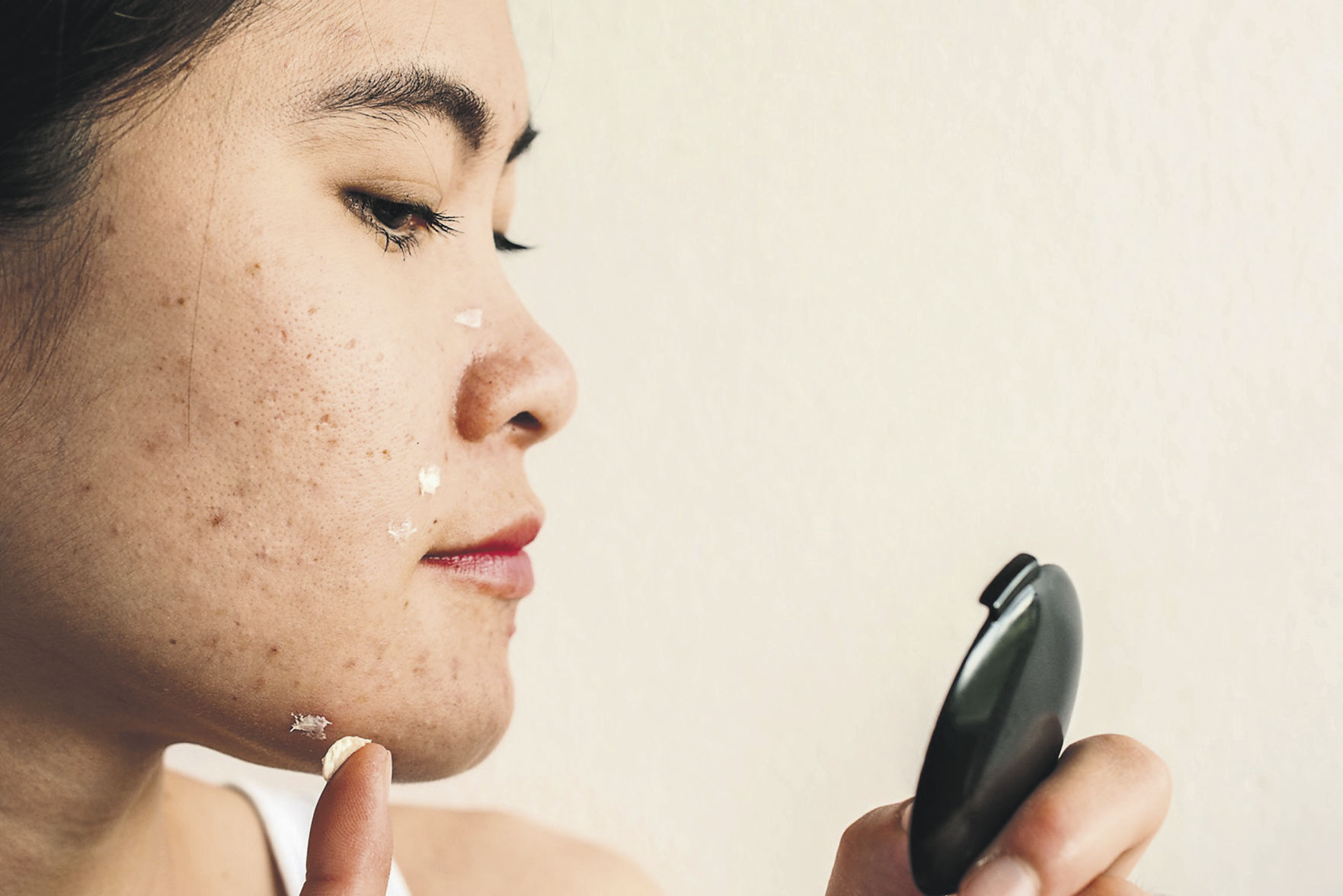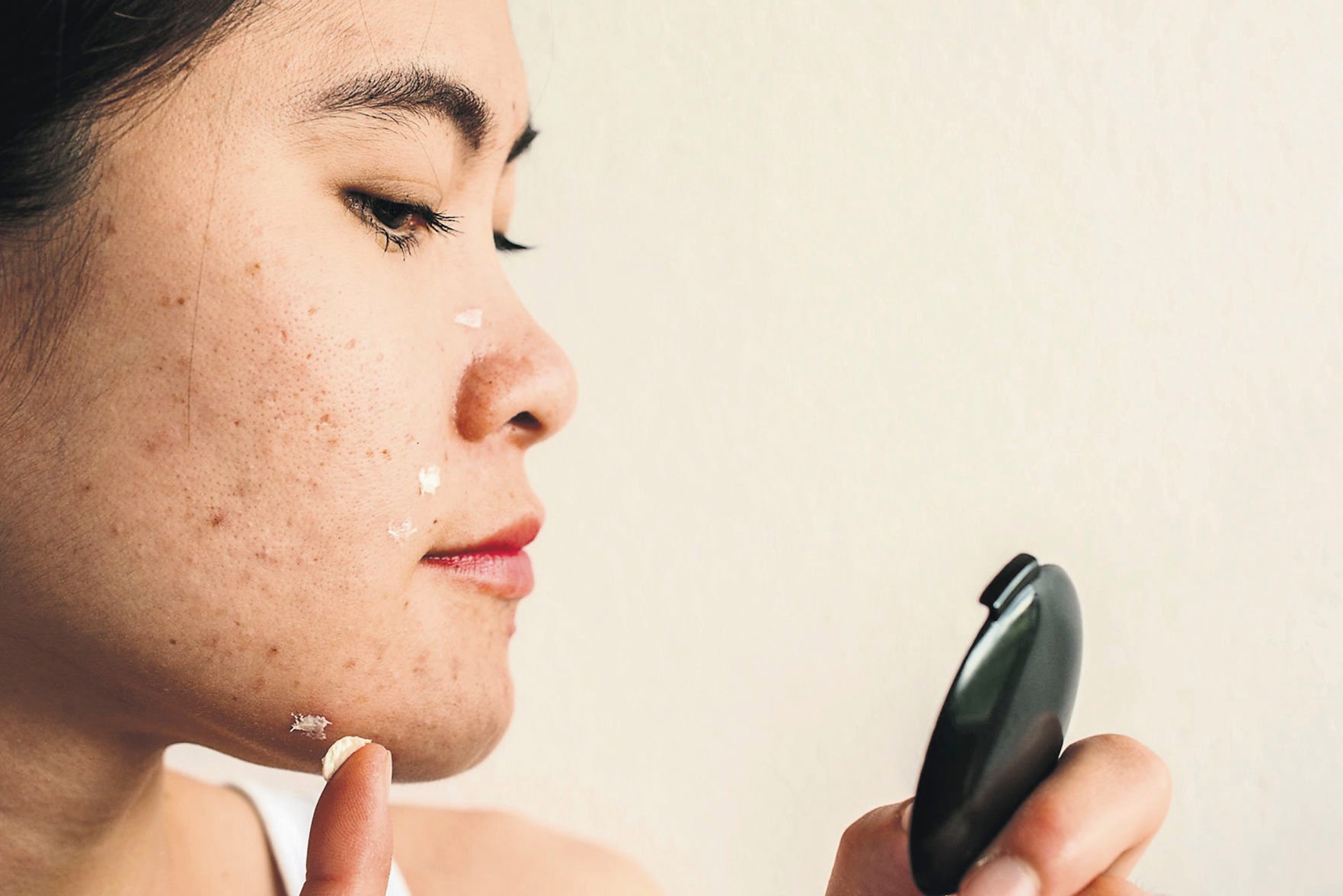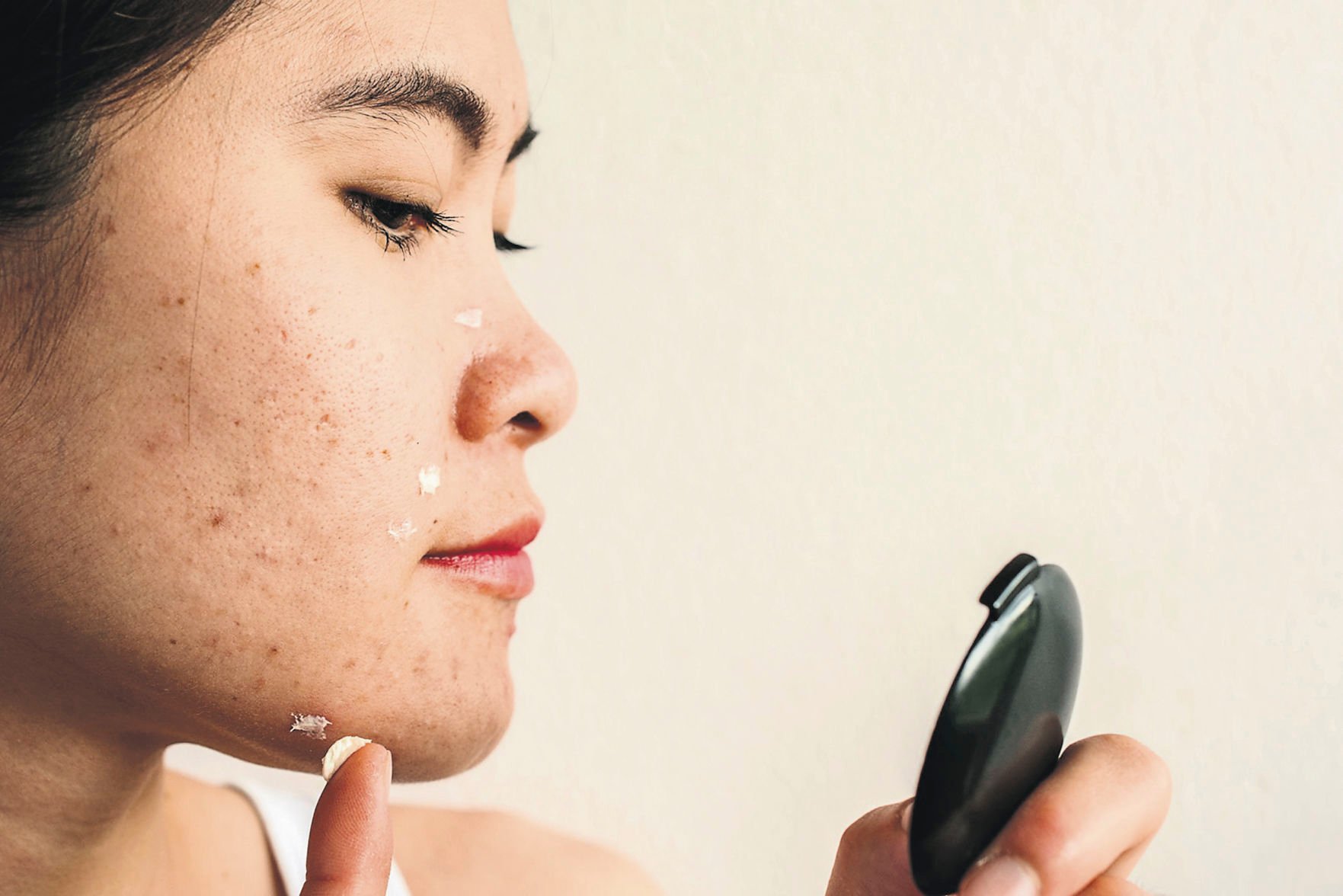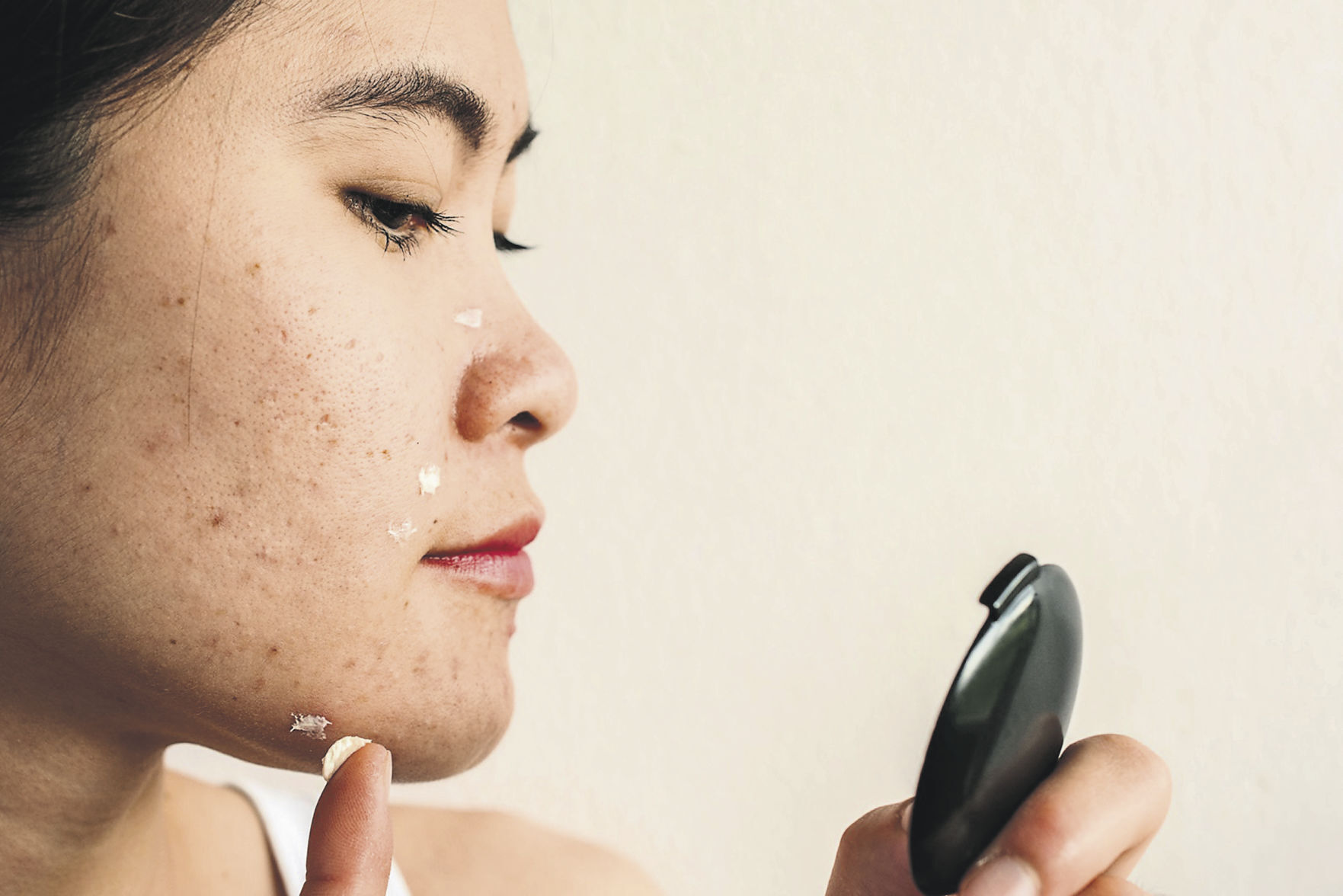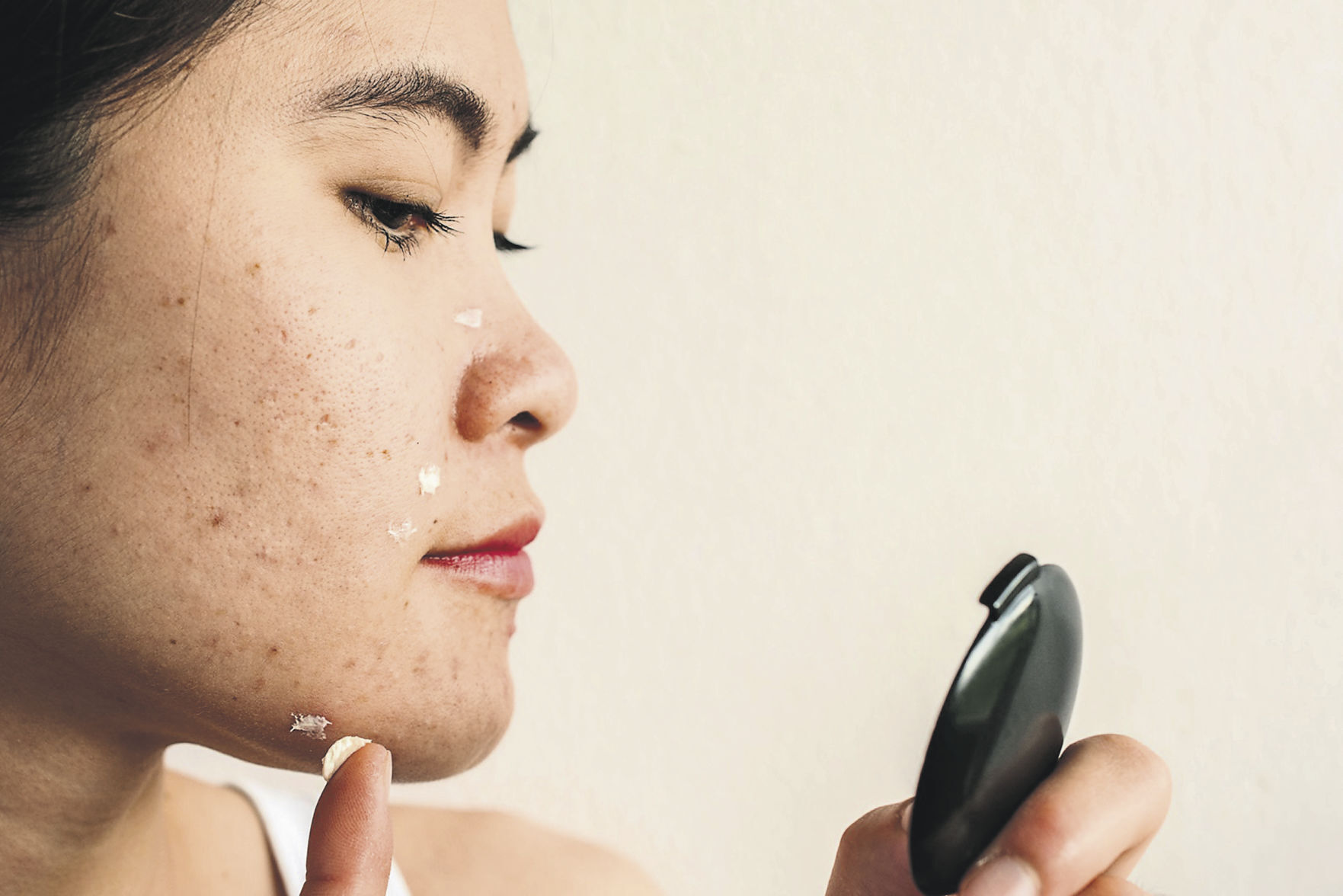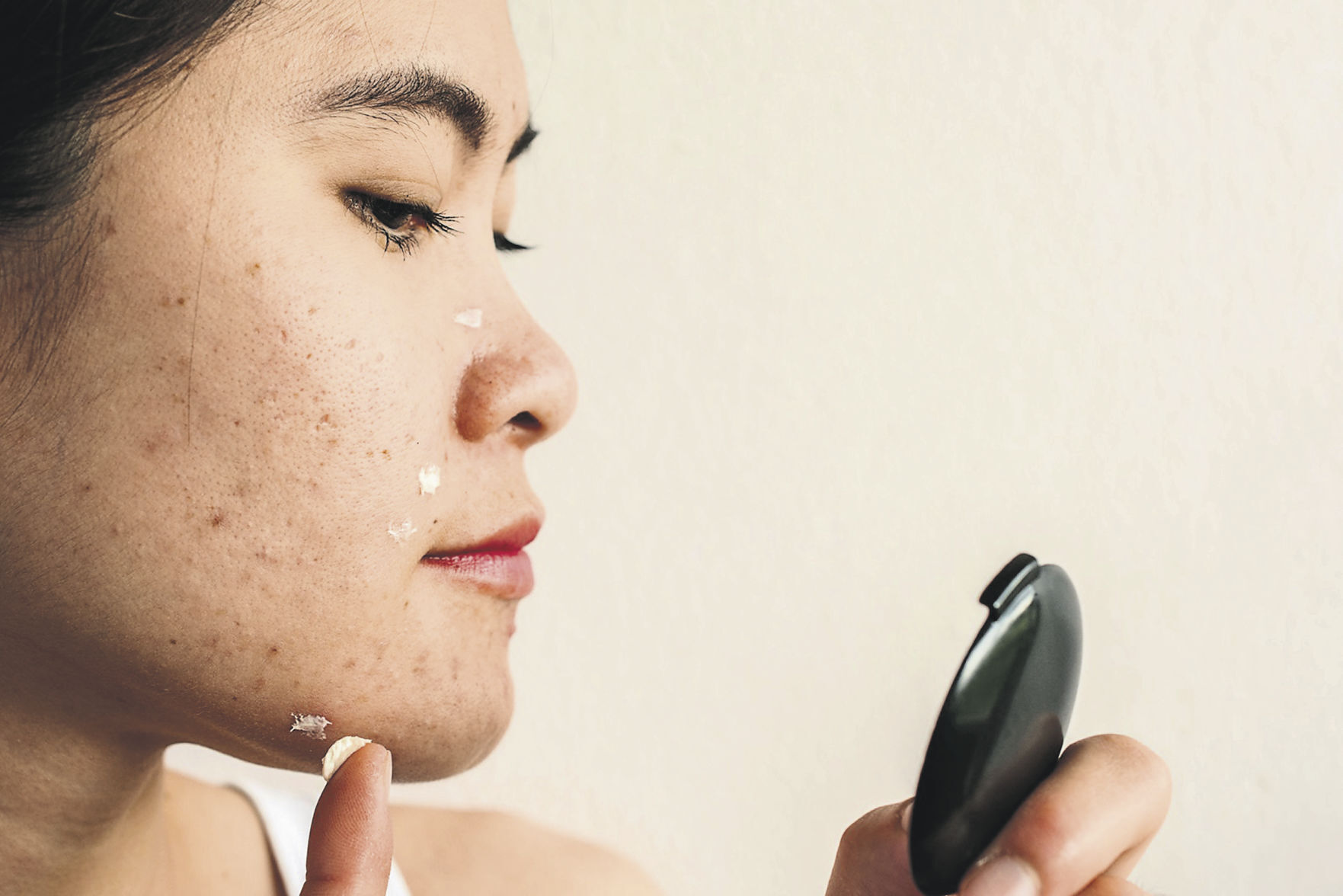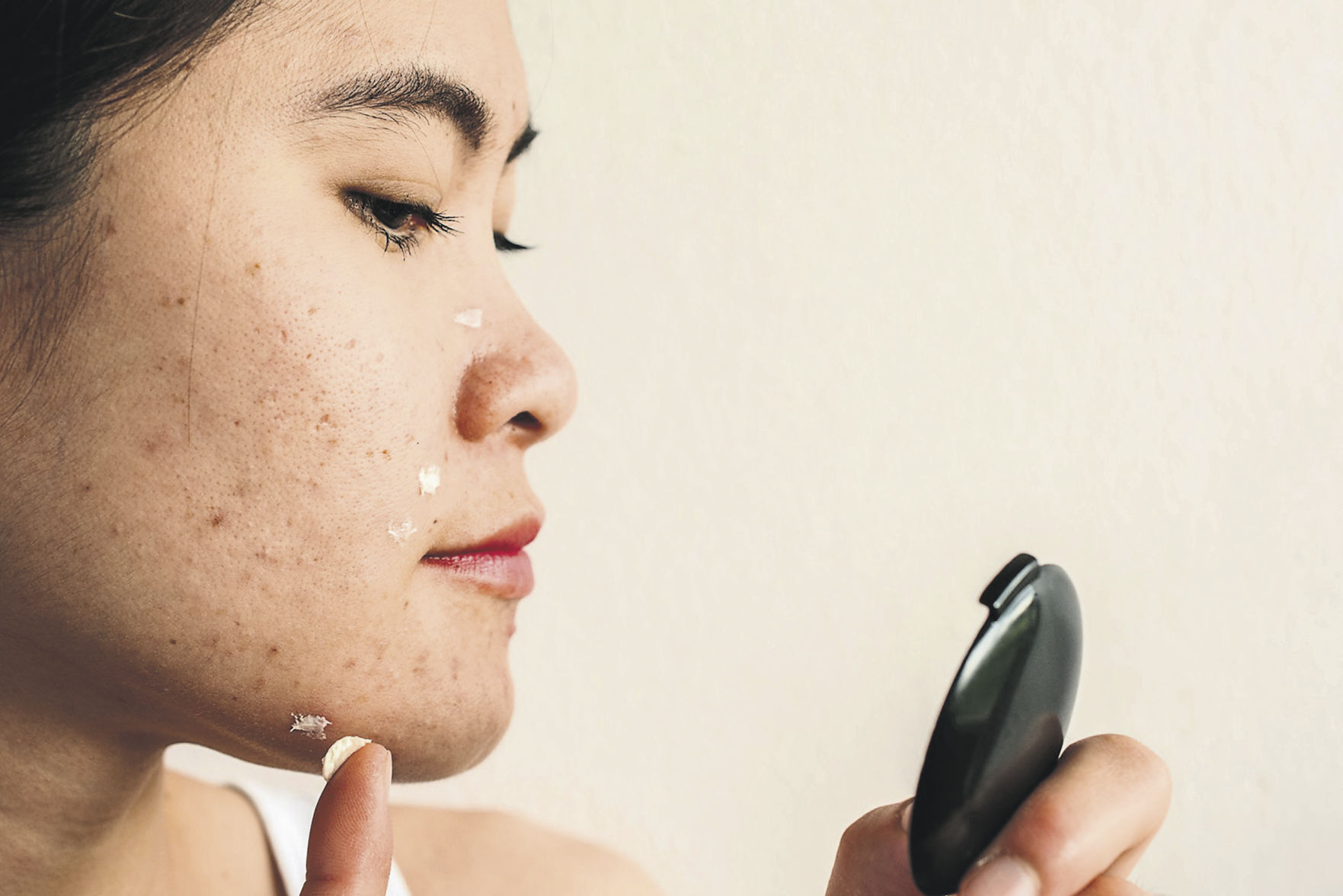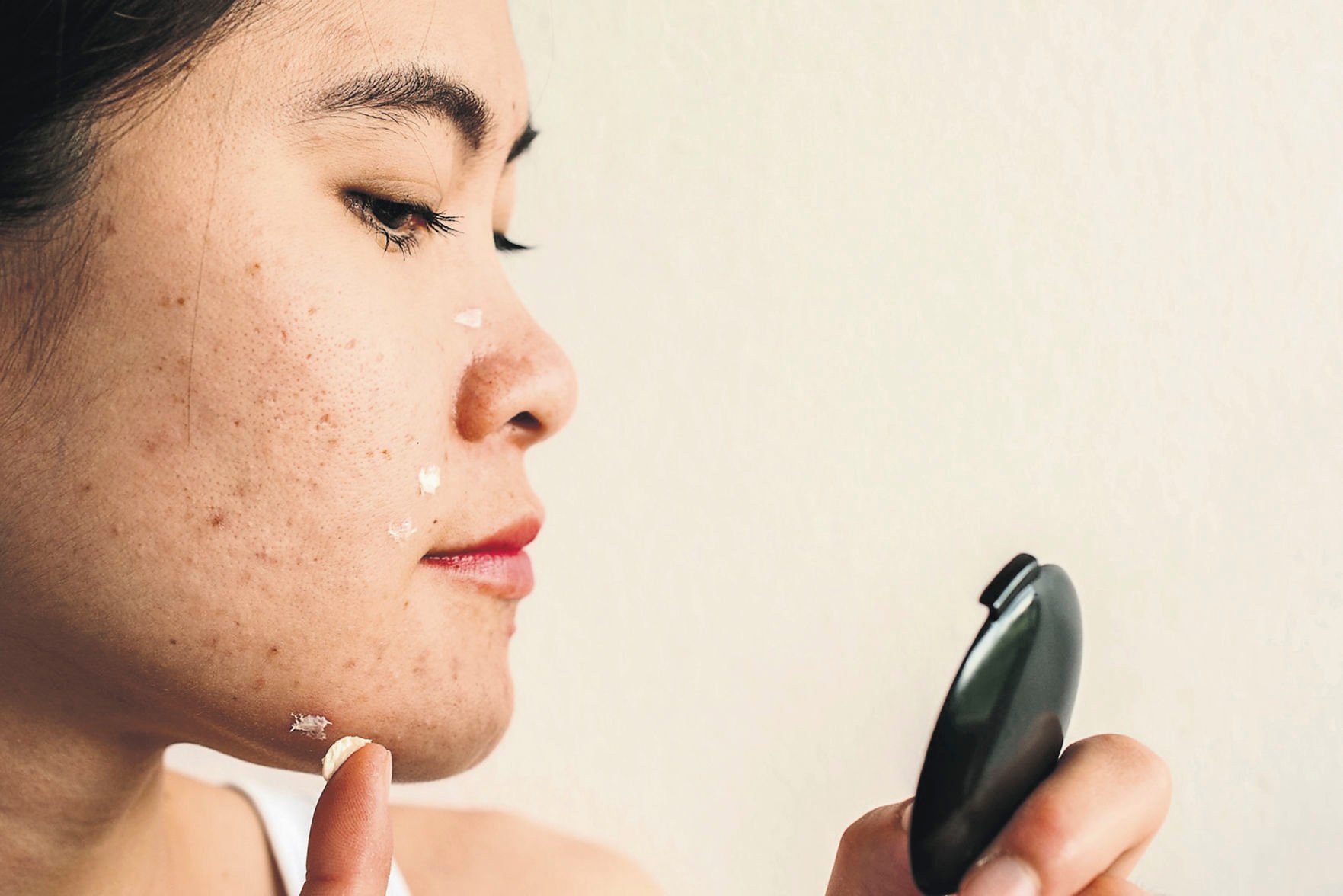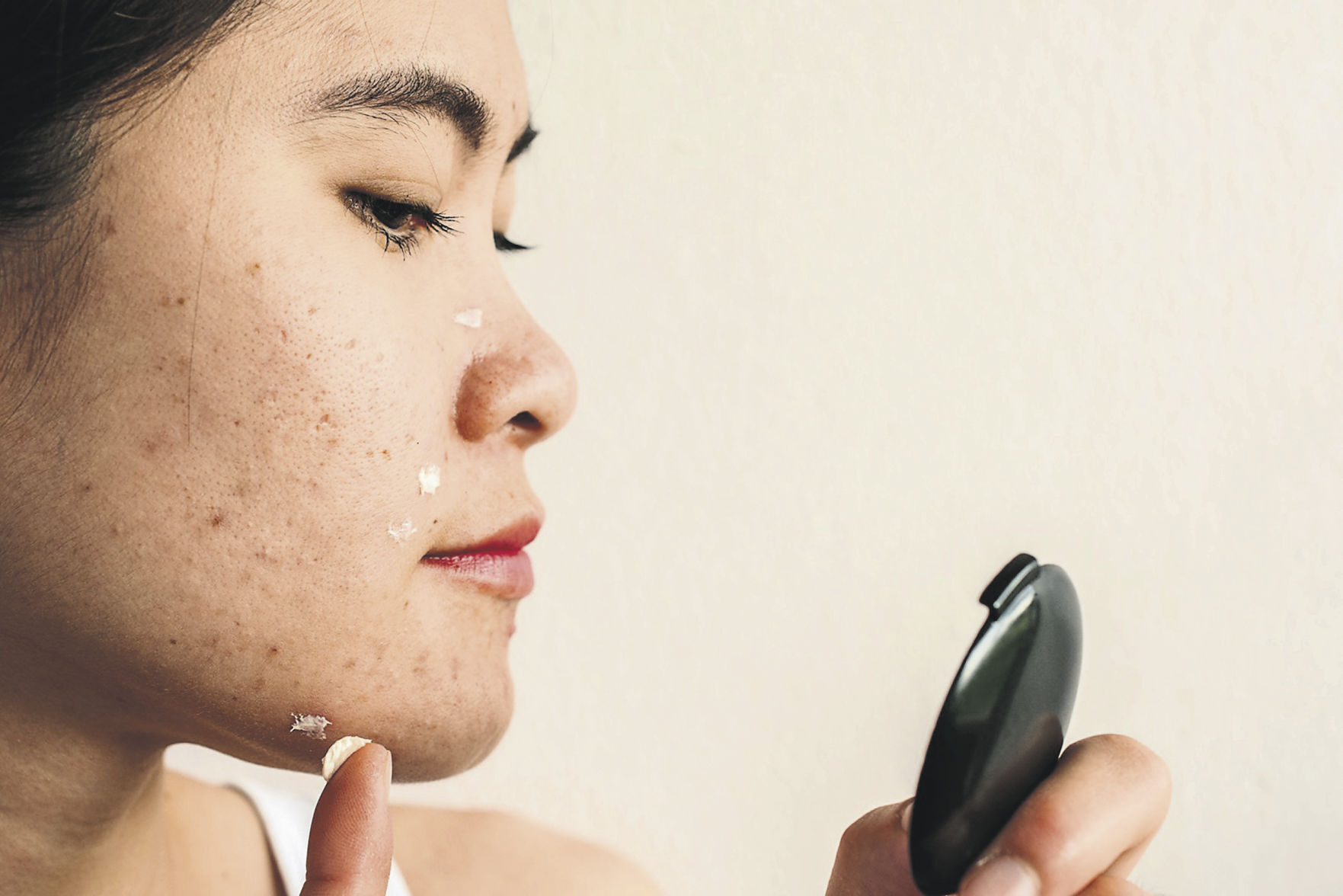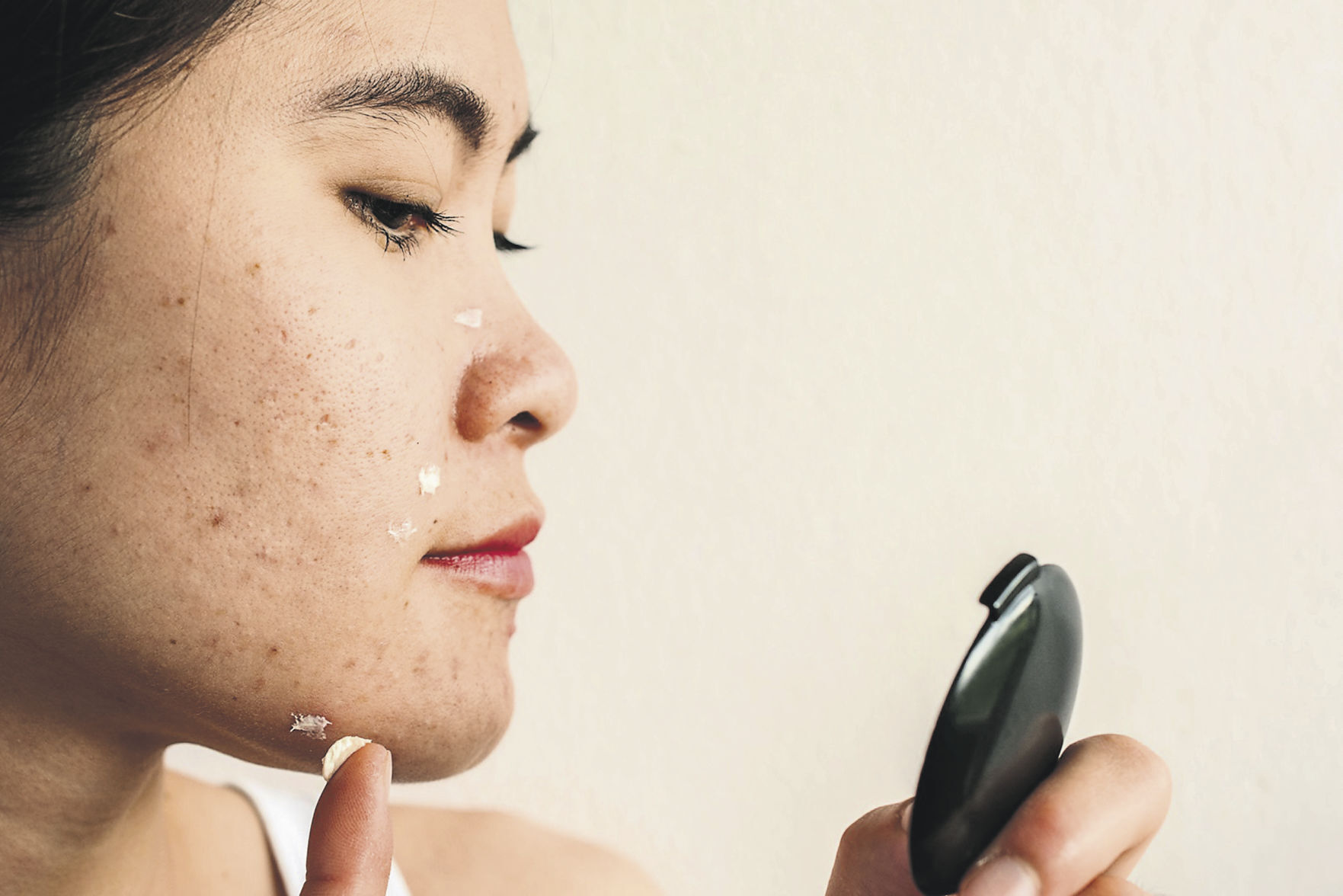Have you ever noticed a pimple pop up during times of stress?
What about fatigued or dry skin?
Chronic stress can show up on the skin, making it appear dull and tired and even leading to acne, redness or general discomfort.
Continual stress also is one of the top contributors to making inflammatory skin conditions worse such as acne, rosacea, psoriasis and eczema.
Acne-prone people specifically can be affected by stress because chronic stress increases the stress hormone cortisol and causes skin’s oil glands to overproduce oil. This oil then mixes with dead skin cells and acne-causing bacteria.
For many people, their skin easily shows signs of internal stress. When this happens, the skin barrier becomes compromised.
The skin barrier is made up of what is called corneocytes, which act like bricks packed tightly together to protect the skin from invaders. Once the barrier is compromised, it is easier for outside sources, such as bacteria and environmental damage, to pollute the skin, as well as for natural moisture to leave the skin. This can lead to even more problems such as inflammation or premature aging.
Cortisol can dehydrate the skin, which increases fine lines. Dehydration also can cause the skin to try to compensate by producing extra sebum or oil, which then can lead to acne.
Stress also can damage skin’s collagen in time, which can lead to wrinkles.
It is important to note that there is a difference between positive stress and negative stress.
Positive stress could be trying a new physical activity for the first time or going on a first date.
Positive stress can release oxytocin, which, in turn, can counter cortisol leading to breakouts or skin itchiness. Some studies suggest that a positive attitude might be connected to faster skin barrier recovery.
7 ways to reduce stress for yourself and your skin
1. Practice mindfulness. If life is feeling out of control and you are stressing out, shift your focus to areas of your life that you can control versus what you cannot.
2. Focus on the eyes. Eyes are one of the first places to show stress. Think fine lines, puffiness, dark circles or dryness. On a regular basis or during times of stress, give your eye area a quick and gentle massage with a hydrating eye product. This can help energize and reduce fatigue around your eyes.
3. Breathe. When we’re stressed, we often take shorter and more shallow breaths without noticing. Breathing like this can make stress and anxiety even worse. Remind yourself to breathe deeply and slowly. You could even incorporate essential oils, such as lavender for aromatherapy benefits.
4. Exercise. This can reduce stress, as well as improve blood circulation, which delivers oxygen and nutrients. This promotes collagen production and the formation of new skin cells, keeping the skin glowing and looking young. Yoga especially can be a great form of exercise and a fantastic stress-reducer. Even something as simple as going for a quick walk with a friend can be helpful.
5. Get enough sleep. Your skin builds collagen and repairs while you sleep, leading to a healthy, glowing complexion. Try to get a minimum of seven hours of sleep per night to receive these skin benefits.
6. Diet. Restrictive diets can become unhealthy, but just limiting your caffeine and sugar intake can help you achieve that glow.
7. Have a routine. Creating a daily and nightly skin care routine with quality products that target acne or premature aging can create vibrant skin.
Speak to a holistic esthetician who can help you create a healthy skin care regimen as well as address lifestyle factors to help you recover from stressed out skin.
Amanda Wettstein is a holistic esthetician at Statera Health & Wellness Solutions in Dubuque.

